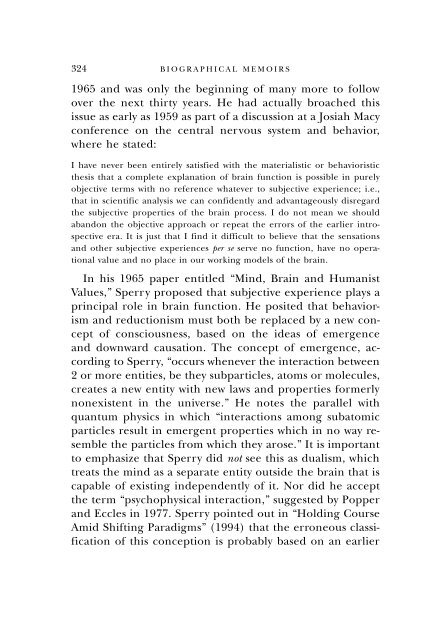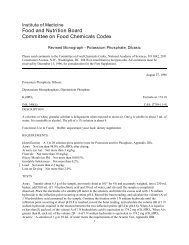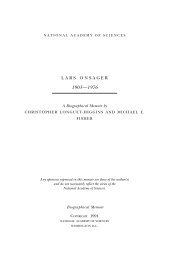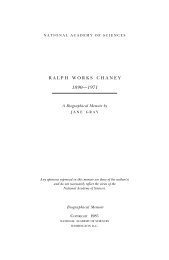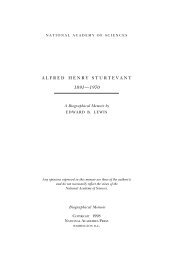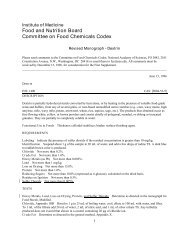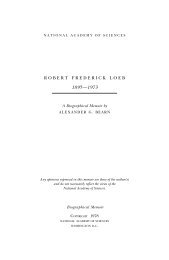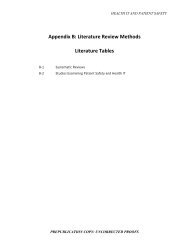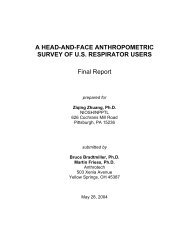ROGER WOLCOTT SPERRY - The National Academies Press
ROGER WOLCOTT SPERRY - The National Academies Press
ROGER WOLCOTT SPERRY - The National Academies Press
You also want an ePaper? Increase the reach of your titles
YUMPU automatically turns print PDFs into web optimized ePapers that Google loves.
324 BIOGRAPHICAL MEMOIRS<br />
1965 and was only the beginning of many more to follow<br />
over the next thirty years. He had actually broached this<br />
issue as early as 1959 as part of a discussion at a Josiah Macy<br />
conference on the central nervous system and behavior,<br />
where he stated:<br />
I have never been entirely satisfied with the materialistic or behavioristic<br />
thesis that a complete explanation of brain function is possible in purely<br />
objective terms with no reference whatever to subjective experience; i.e.,<br />
that in scientific analysis we can confidently and advantageously disregard<br />
the subjective properties of the brain process. I do not mean we should<br />
abandon the objective approach or repeat the errors of the earlier introspective<br />
era. It is just that I find it difficult to believe that the sensations<br />
and other subjective experiences per se serve no function, have no operational<br />
value and no place in our working models of the brain.<br />
In his 1965 paper entitled “Mind, Brain and Humanist<br />
Values,” Sperry proposed that subjective experience plays a<br />
principal role in brain function. He posited that behaviorism<br />
and reductionism must both be replaced by a new concept<br />
of consciousness, based on the ideas of emergence<br />
and downward causation. <strong>The</strong> concept of emergence, according<br />
to Sperry, “occurs whenever the interaction between<br />
2 or more entities, be they subparticles, atoms or molecules,<br />
creates a new entity with new laws and properties formerly<br />
nonexistent in the universe.” He notes the parallel with<br />
quantum physics in which “interactions among subatomic<br />
particles result in emergent properties which in no way resemble<br />
the particles from which they arose.” It is important<br />
to emphasize that Sperry did not see this as dualism, which<br />
treats the mind as a separate entity outside the brain that is<br />
capable of existing independently of it. Nor did he accept<br />
the term “psychophysical interaction,” suggested by Popper<br />
and Eccles in 1977. Sperry pointed out in “Holding Course<br />
Amid Shifting Paradigms” (1994) that the erroneous classification<br />
of this conception is probably based on an earlier


